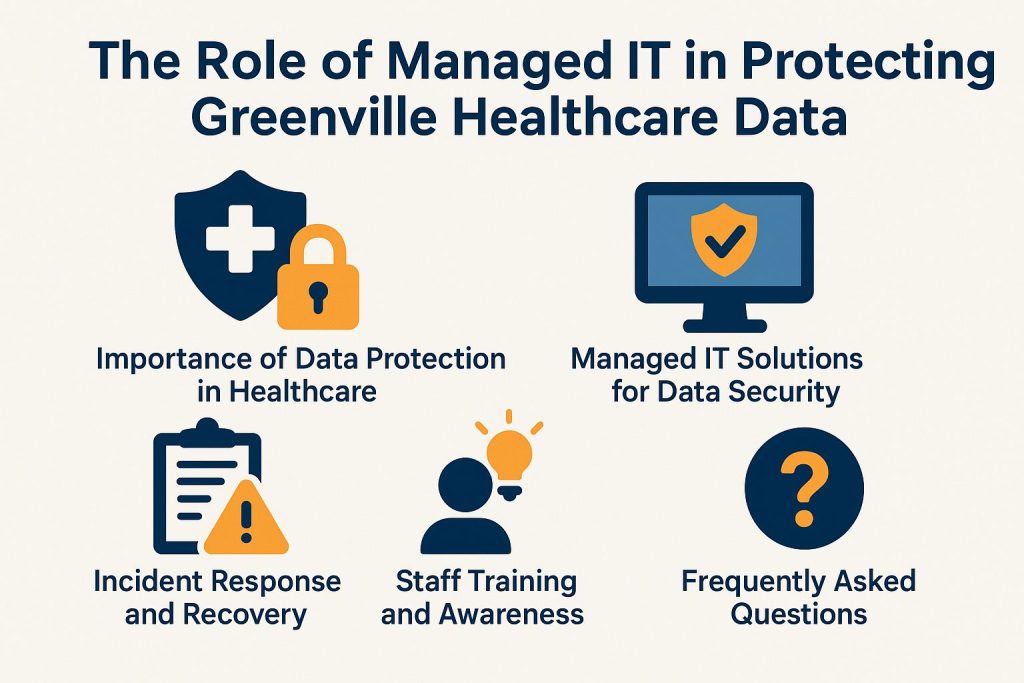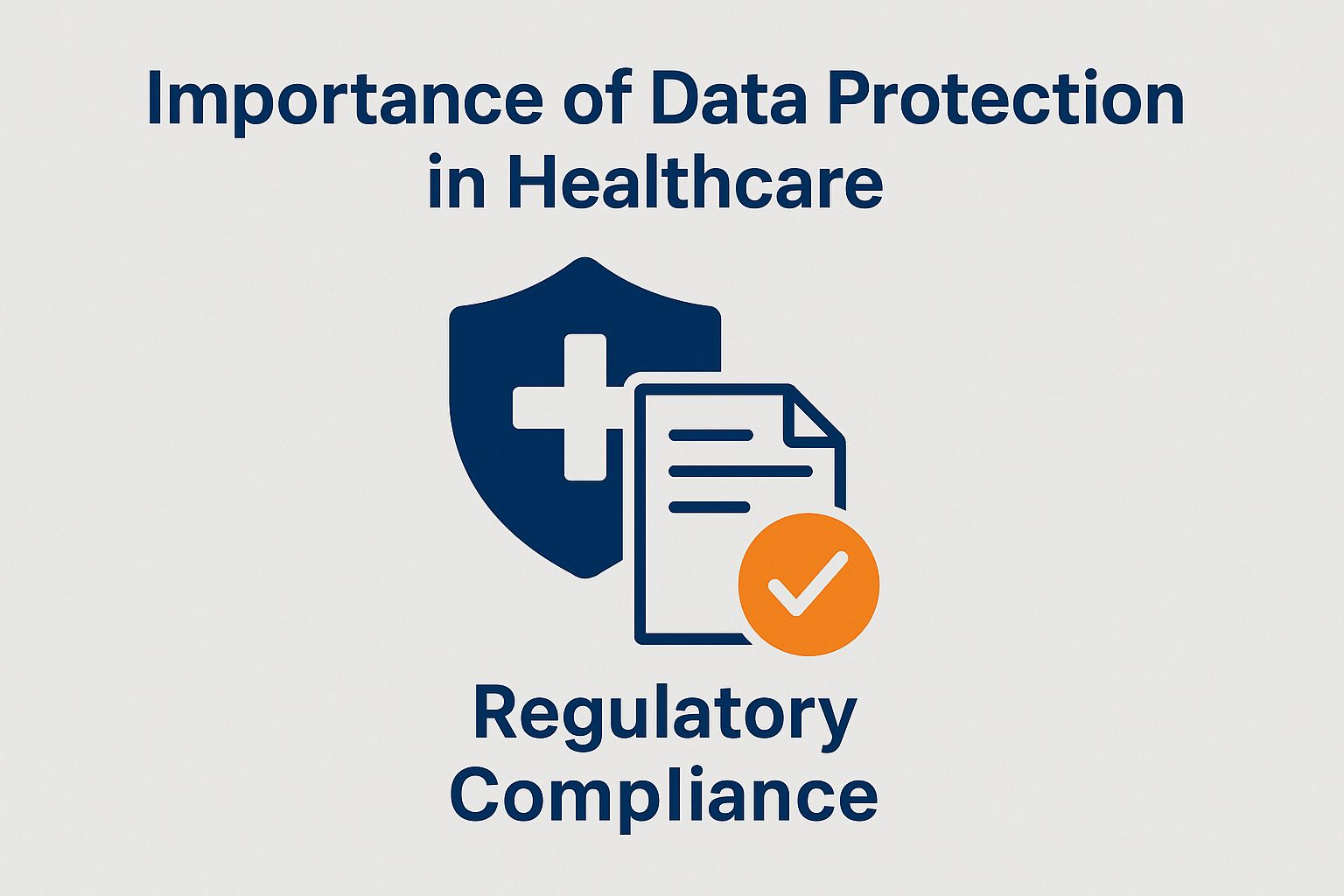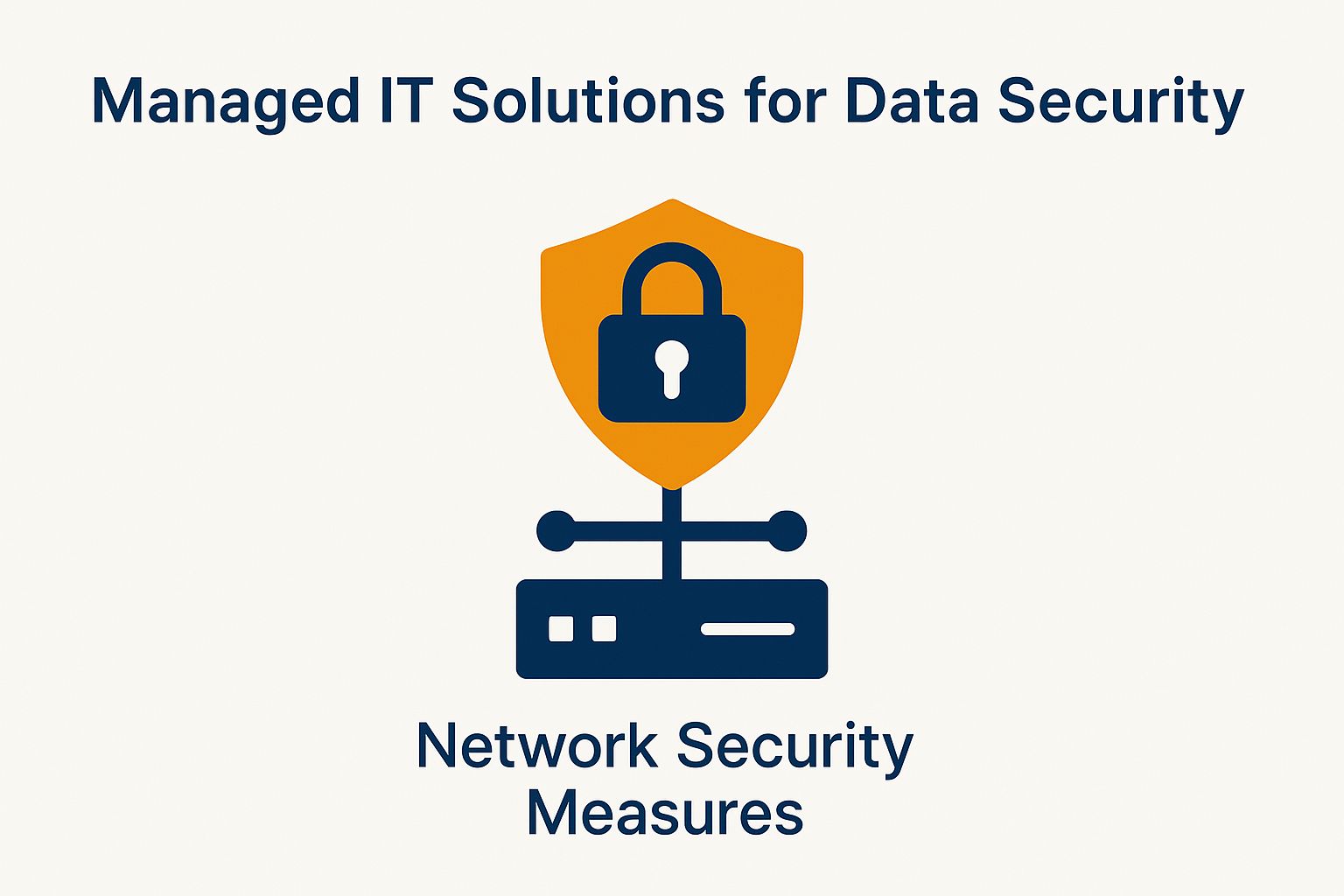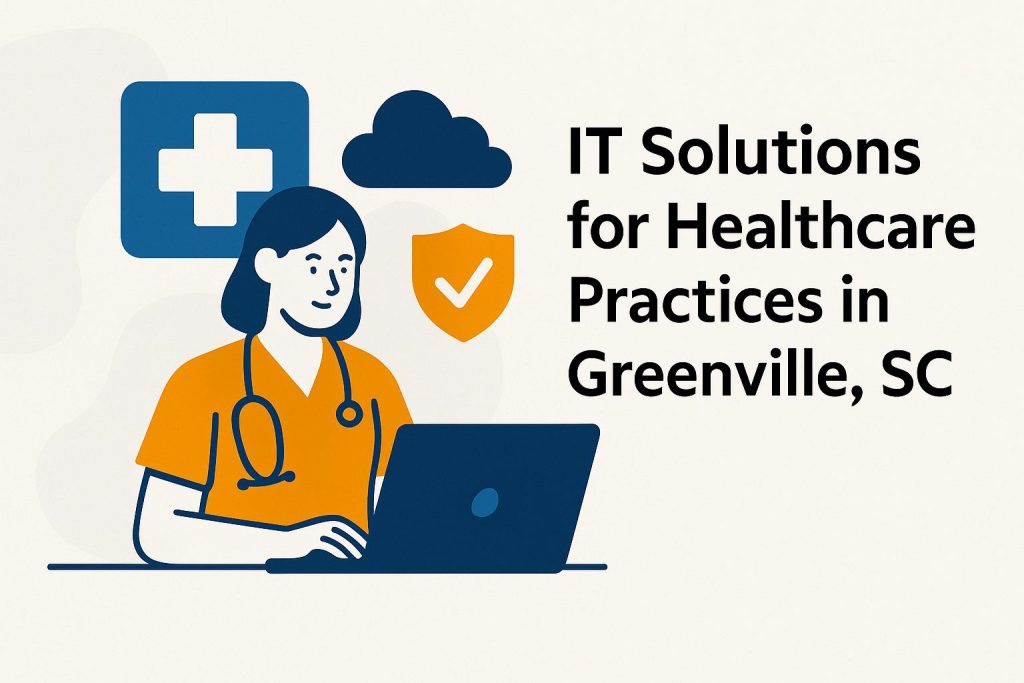The Role of Managed IT in Protecting Greenville Healthcare Data

Healthcare organizations in Greenville rely more on digital solutions. Safeguarding sensitive data is now crucial. Protecting patient information ensures compliance with regulations. It also builds patient trust and supports operational integrity. This article shows how managed IT services improve data and cloud security. It covers network security measures and swift incident response. It examines how comprehensive staff training further bolsters these protective strategies, inviting readers to consider the multifaceted approach required to secure healthcare data effectively.
Importance of Data Protection in Healthcare
Data protection is of utmost importance in healthcare, serving not only to ensure compliance with regulations such as HIPAA but also to maintain patient trust and safeguard sensitive information. For healthcare facilities looking to enhance their security infrastructure, leveraging comprehensive IT security services can be a pivotal step. These services help address cybersecurity threats efficiently and ensure the protection of sensitive data.

Regulatory Compliance
Regulatory compliance frameworks such as HIPAA impose stringent data protection strategies, with penalties for non-compliance potentially reaching up to $1.5 million per violation. Healthcare organizations must use a systematic approach to achieve HIPAA compliance.
The process begins with conducting annual risk assessments utilizing tools like Qualys or Nessus, which can effectively identify vulnerabilities within their systems. Next, organizations should implement a training program for employees. This program should focus on patient data privacy and security protocols.
Schedule regular refresher courses to ensure ongoing compliance.
Additionally, establishing security measures such as encrypted data storage, data encryption, and access controls is essential. This comprehensive strategy not only mitigates risks but also promotes a culture of compliance within the organization.
Managed IT Solutions for Data Security
Managed IT solutions include a comprehensive array of services aimed at improving data security and implementing secure data sharing practices. These services encompass proactive monitoring, risk management, and compliance support, all of which are essential for safeguarding an organization’s information assets.

Network Security Measures
Effective network security measures are essential. These include firewall management, threat detection, and endpoint security to protect patient data from cyber threats. To enhance security, it is advisable to implement a multi-layered approach. This can begin with a robust firewall, such as the Fortinet Firewall, which typically incurs an annual cost of approximately $1,500, to regulate incoming and outgoing traffic.
In addition, pairing this firewall with an Intrusion Detection System (IDS) like Snort will facilitate monitoring of network activity for any malicious behavior. Regular security audits are crucial. Schedule them quarterly to identify vulnerabilities quickly.
Furthermore, utilizing threat intelligence platforms such as ThreatConnect can aggregate threat data and assist in the development of proactive defense strategies. Collectively, these measures contribute to establishing a resilient security posture capable of defending against evolving threats.
Incident Response and Recovery
An effective incident response plan is essential for mitigating the impact of data breaches and ensuring a swift recovery for healthcare organizations.
The creation of an incident response plan involves several critical steps.
- First, assemble a dedicated response team. Define roles like team leader, technical specialists, and communication officers.
- Next, develop an incident response checklist. This checklist should include steps like identifying the breach, assessing damage, and notifying authorities.
- Use tools like PagerDuty to alert and coordinate responses efficiently.
The average cost of a data breach in healthcare is about $3.86 million. It is essential to prioritize strong cyber risk assessment and quick action to reduce losses.
Staff Training and Awareness
Regular staff training is essential. It helps protect against cyber threats like phishing and social engineering. Cybersecurity training should be included.
Conduct quarterly training sessions focused on real-world scenarios to be effective.
Platforms like KnowBe4 offer interactive courses starting at $24 per user per year. This training can reduce phishing incidents by up to 70%.
Utilizing simulated phishing tools, such as PhishMe, can assist in assessing employee readiness and identifying areas that require improvement. Curious about how a strong IT security policy can further enhance these training efforts? Consider integrating policy development into your strategy for greater resilience.
Incorporate a feedback loop. Adjust training content based on incident reports and employee performance to improve training effectiveness.
Frequently Asked Questions
What role does managed IT play in protecting healthcare data in Greenville?
The role of managed IT in protecting Greenville healthcare data is to ensure that all sensitive patient information is securely stored, accessed, and transmitted. This includes implementing security measures, regularly updating software and systems, and creating data backup and recovery plans. As mentioned in our detailed overview of IT Security Services in Greenville, cybersecurity experts are integral to safeguarding healthcare data from potential threats.
Why is it important for healthcare facilities in Greenville to have managed IT support?
Managed IT support is crucial for healthcare facilities in Greenville because it helps to prevent data breaches and ensures compliance with HIPAA regulations. It also allows for efficient and effective management of technology and data, ultimately improving patient care and trust.
What type of security measures are implemented by managed IT for protecting patient data in Greenville?
Managed IT implements various security measures such as firewalls, encryption, and access control to protect patient data in Greenville. They also regularly monitor and update systems to prevent and detect any potential security threats.
How does managed IT ensure compliance with HIPAA regulations for healthcare data in Greenville?
Managed IT helps Greenville healthcare facilities comply with HIPAA. They perform regular audits, provide training, and implement policies for handling patient data.
What is the process for data backup and recovery in managed IT for Greenville healthcare facilities?
The process for data backup and recovery in managed IT includes regularly backing up all data, storing it securely, and having a plan in place for recovering data in the event of a system failure or cyber attack. This ensures that patient data is always protected and accessible.
How does managed IT support improve patient care in Greenville healthcare facilities?
Managed IT support improves patient care in Greenville by ensuring that technology and data systems, including health information technology, are functioning properly, allowing for efficient and accurate access to patient information. This ultimately leads to better quality of care and a more positive patient experience.




